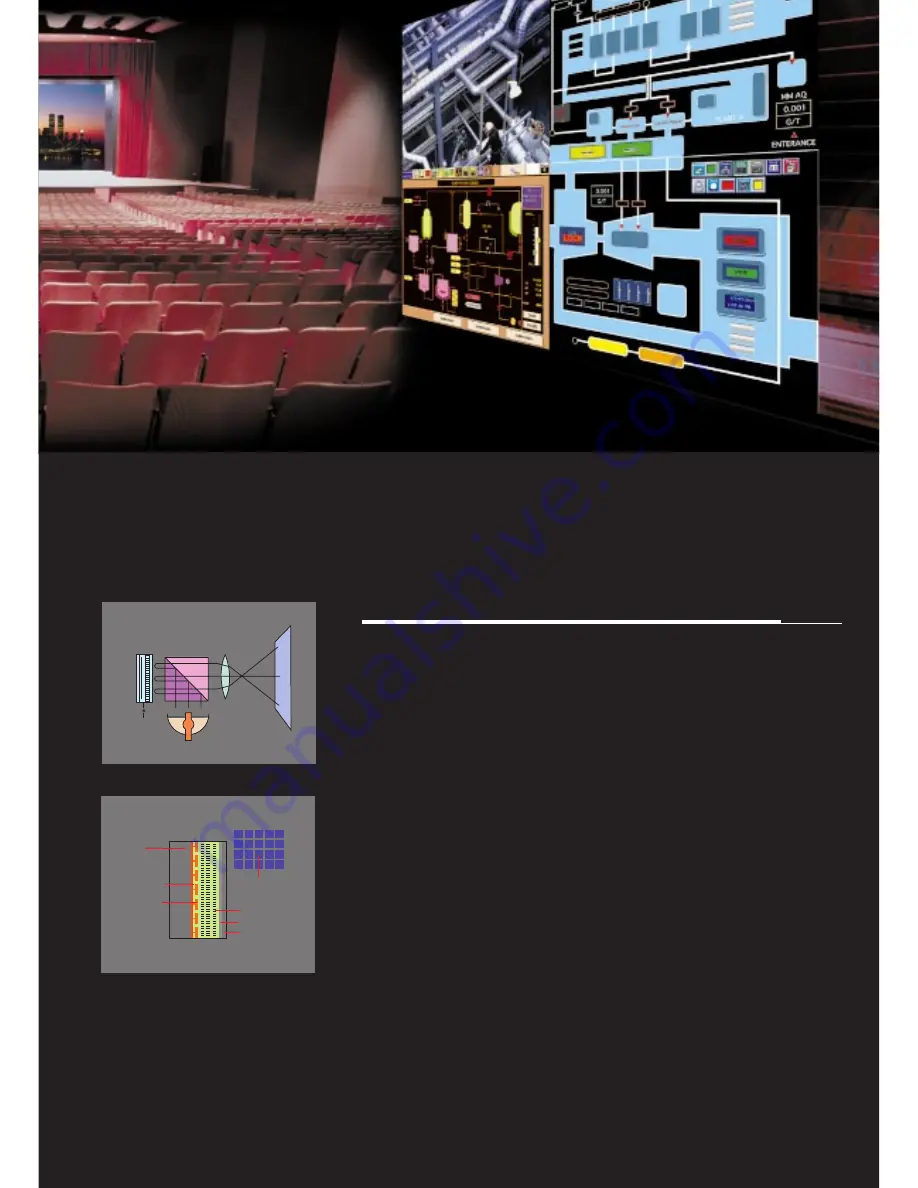
D-ILA
™
technology — the secrets of superior quality
• Higher brightness and resolution
LCD panels are composed of a dense array of pixels which are illuminated individually to produce patterns
and images. In conventional “transmissive” LCD panels, the driving transistor which activates the pixels is
mounted on the same surface as the pixels, so limiting the inherent degree of brightness and resolution.
With JVC’s D-ILA
™
device, on the other hand, the driving IC substrate is located behind the liquid crystal
layer, so making it possible to achieve much higher levels of brightness and resolution than conventional
devices.
Device Structure
Operation Principle
D-ILA
™
device
Input signal
Lamp
Side view
Front view
Pixel
Liquid crystal layer
Glass substrate
Driving IC
(CMOS substrate)
Planarized layer
Reflective pixel
electrode
Input signal written directly in a
form of electric signal
Transparent electrode
Screen
Projection lens
PBS (Polarized
Beam Splitter)
ontrast, And 5000 ANSI Lumens Of Sheer Brilliance
Large-screen projection with compact design
The D-ILA
™
’s high light efficiency maximizes the light output power for large screen projection without
requiring a large, bulky projection unit. In combination with an advanced system that makes it possible to
write the input signal directly on the D-ILA
™
device in the form of an electric signal, this super-efficient
technology has enabled us to simplify the projector’s design and incorporate small 0.9” devices. The result
is outstanding projection power in a remarkably compact, lightweight unit.
Sharp, noiseless image
By minimizing the space between pixels, the D-ILA
™
’s high-density structure and extra-high aperture ratio
of 93% effectively eliminate stripe noise and producing crisp, clear images from edge to edge with well-
defined details and vivid, true-to-life color.
Higher contrast
Another advantage of the D-ILA
™
device is the vertical alignment (“homeotropic” structure) of the liquid
crystal layer. This ensures that projected images have extra high contrast and makes it possible to
accurately reproduce even very subtle gradation differences between the lighter and darker parts of the
projected image.
1000 :1
Super Contrast Ratio


























